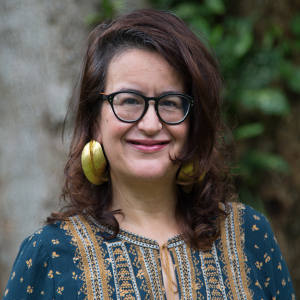Houria Djoudi
Houria Djoudi has been a Senior Scientist at CIFOR-ICRAF since 2011. Djoudi’s work focuses on socioecological systems analysis, particularly linking environmental and institutional changes and policy processes, including multi-scale dynamics. She has 20 years of work experience in understanding human and ecosystem interaction in different socio-ecological systems in North and West Africa and Central Asia.
In her position, Djoudi’s work focuses on climate change adaptation, vulnerability analysis and food security, particularly applied to the context of drylands. She spent several years based in Mali and Burkina Faso where she conducted research projects related to ecosystem-based adaptation as well as the environmental impacts and linkages between migration, adaptation and ecosystems. Djoudi has a PhD in Agriculture (University of Giessen, Germany), with specialization in Pastoralism and rangeland management.














